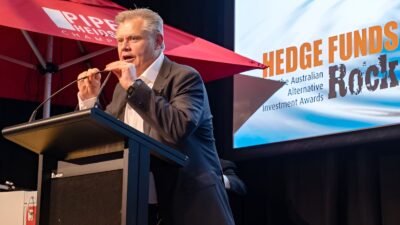One of Australia’s last corporate superannuation funds will merge with Australian Retirement Trust following years of pandemic disruption and regulatory change that stymied efforts to grow its member base.
The $27 billion TelstraSuper’s move to back Quinbrook’s Net Zero Power Fund is the latest in a series of climate-related investments that it feels are well-suited for smaller and more agile funds.
J.P. Morgan has leveraged its dedicated transition team and merger experience to win custody of the circa $30 billion Spirit Super ahead of the fund’s tie-up with Care Super.
In the AI-fueled rally, some companies will win – and others will disappear. But while some parts of the market look hideously expensive, their long-term prospects might justify their valuations.
A different investment environment requires a different investment model, says Colonial First State, and funds will have to become more nimble if they’re to cope.
Offshore offices might get super funds “closer to the action”, but they can come at a literal cost – and not every fund is prepared to pay it.
The Alternative Future Foundation has begun investing its financial reserves with a who’s-who of Australian alternatives managers as it looks to boost returns for the charities it supports.
The $85 billion industry fund has tipped more money into a real estate debt fund from Metrics Credit Partners as it looks to diversify its private markets exposures.
What matters more than big returns is making sure the right people are getting them. For members in Aware’s lifecycle default, the numbers are “phenomenal”.
In the topsy turvy world of Your Future, Your Super being down 20 per cent is only a bad thing if the benchmark is 50 bips better, and defensive positioning in a weird market isn’t rewarded.















